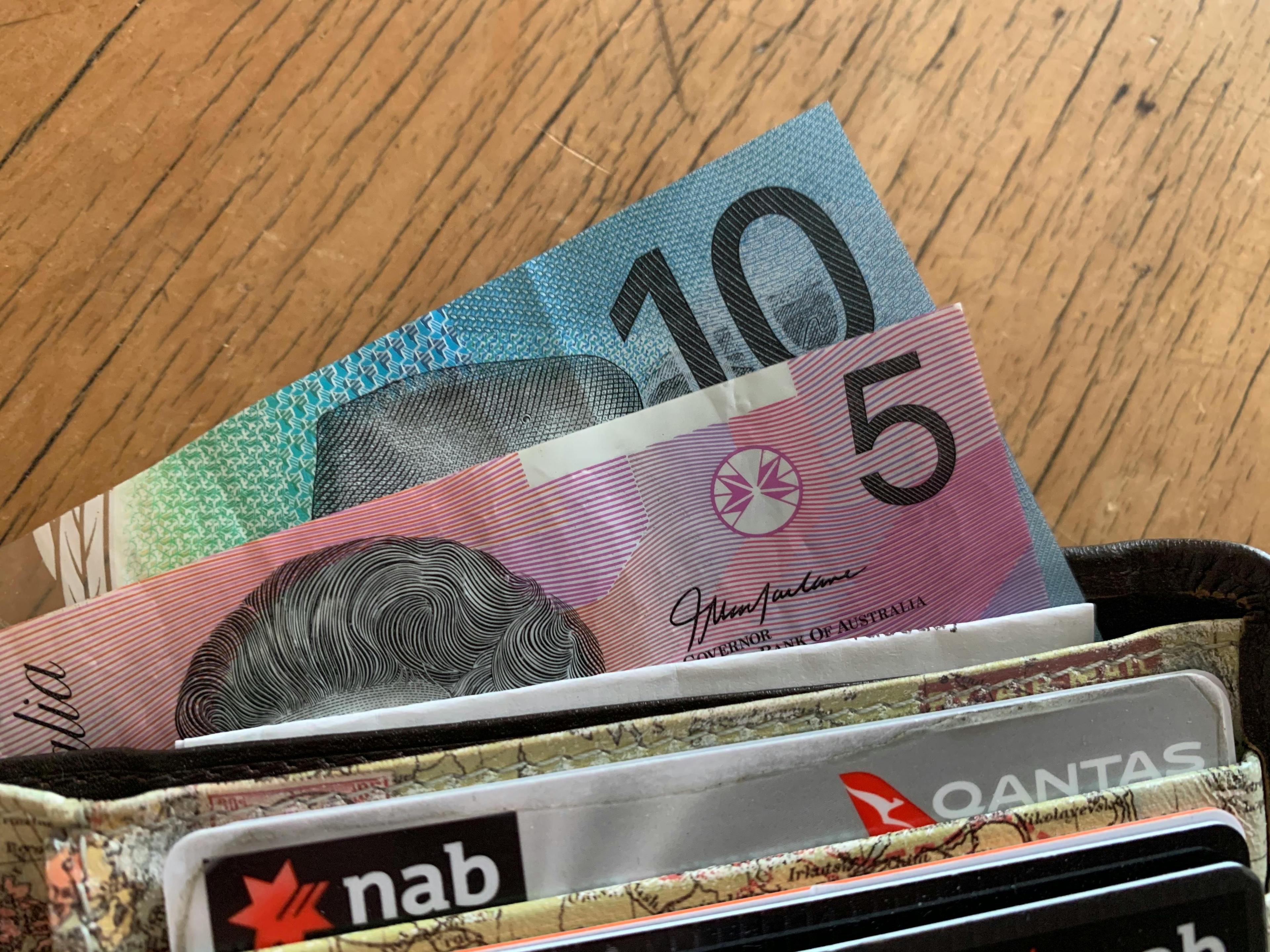
Why Real Estate Commissions Are Outdated
Why big commissions don’t make sense in 2025 — and what sellers can do instead.
Introduction
Selling a home in Australia often means paying a hefty commission to a real estate agent, typically a percentage of the sale price. Decades ago, this commission-based model made sense – agents were gatekeepers with exclusive networks of buyers and sellers. But in today’s technology-driven age, much of that work has been streamlined or automated. Homeowners are asking: are traditional commissions still justified, or have they become overpriced and unnecessary? In this blog, we explore why real estate commissions are increasingly seen as outdated and how the landscape in Australia (especially Victoria) is changing.
Table Of Contents
The 1980s: When Agents’ Networks Were Indispensable
In the 1980s (and earlier), buyers and sellers were heavily dependent on real estate agents to connect with each other. There was no internet, no realestate.com.au or Domain, and no centralised database of homes for sale that the public could access. Agents had to manually compile listings and rely on personal networks and local knowledge to match buyers with available properties. If you wanted to sell your house, you essentially had to go through an agent who “knew people” and could get the word out.
This exclusivity justified the commission fees at the time. Simply put, agents were the gatekeepers. They spent significant effort on advertising via newspaper ads, window cards, phone calls, and physically showing homes. Travel and time costs were high – agents would drive prospective buyers around neighbourhoods since information wasn’t readily available otherwise. In that era, paying a percentage commission was the norm because without an agent’s network and legwork, selling or finding a home was an uphill battle.
The Digital Transformation of Home Selling
Fast forward to today, and the situation has completely changed. The advent of the internet and digital technology has revolutionised the real estate industry. Now, there are centralised online platforms where almost every property for sale is listed. Agents and consumers alike use these platforms. In Australia, websites like realestate.com.au and Domain function as nationwide marketplaces. Agents can simply log in and upload a property listing, and thousands of buyers can see it instantly – a far cry from the days of guarded Rolodexes. In fact, most of the information that was once exclusive to agents is now available to everyone online.
Consider how buyers operate today: they browse listings on their smartphones or computers, often finding properties on their own before ever contacting an agent. They can see photos, virtual tours, floor plans, recent sales in the area, school zones, and more – all without an agent’s involvement. The information age has made the home-search process largely DIY for buyers, with agents stepping in mainly when it’s time to arrange viewings or handle negotiations. This means the agent’s role in simply providing access to listings has diminished.
Moreover, technology has streamlined many tasks that used to consume an agent’s time. Communication is instant (emails, texts, social media) compared to phone tag and fax in decades past. Documents can be signed electronically. Marketing a property is easier and often more affordable (think targeted online ads and email campaigns versus costly newspaper spreads). And while agents still do in-person showings, prospective buyers can pre-screen homes online, reducing the number of physical visits needed. All of this adds up to a selling process that is far more efficient than it was 40 years ago – requiring less time and effort from agents for a successful sale.
High Commissions in a High-Tech Era
Despite these efficiencies, commission rates haven’t dropped proportionally. It’s common in Australia for real estate agents to charge around 2% to 2.5% of the property’s sale price as commission. In Victoria specifically, recent figures put the average commission at about 2.18%, though it can vary by region (higher in some rural areas, lower in competitive city markets). At first glance, 2% might sound small – but consider what that means in dollars:
- Australia’s soaring property prices make that percentage a big number. For example, a $1,000,000 home sale in an inner Melbourne suburb at a ~2% commission would incur about $20,000 in agent fees. If the commission were 2.5%, that’s $25,000. This is money straight out of the seller’s pocket (coming off their sale proceeds). In fact, agent commission is usually the single largest cost of selling a home, more than marketing, legal fees, or staging costs
- Property values have risen dramatically over the decades, which means commissions (as a percent of those values) have ballooned in absolute terms. To illustrate: the average Australian house price in the 1980s was only tens of thousands of dollars. Today, the average home costs nearly a million dollars. Even if commission percentages stayed similar, the actual cash going to agents has increased exponentially. One industry commentator pointed out that “the amount vendors pay in commission has only increased as property prices have gone up, and the money real estate agents are getting has increased as well.” In other words, agents are earning far more today per house sale than they did a generation ago, largely thanks to rising prices rather than extra work.
- In competitive markets, some agents will even discount their commission for very expensive properties, implicitly acknowledging that a standard percentage would be an outsized fee for the effort involved. For instance, if you were selling a high-end home worth say $4 million, a typical 2% commission would be $80,000 – a huge sum for one transaction. Recognising this, many agents negotiate lower rates on luxury listings (sometimes a sliding scale or a capped fee) because beyond a certain price, the commission is “more than enough” for the work put in. This practice underscores how the traditional percentage model can overpay agents as prices climb.
In short, commissions have remained high, even as technology has made selling easier and home prices have surged. This combination leads many to conclude that the old commission model is overpriced in today’s market.
Are Agents Overcharging? A Look at Work vs. Reward
What do agents do to earn a $20k or $50k commission today, and is it commensurate with the fee? Many hard-working, honest real estate agents provide valuable services – from pricing expertise to negotiation skills. However, even industry insiders and consumer advocates admit that the traditional commission often far exceeds the actual labor involved.
Australian real estate veteran and consumer advocate Neil Jenman argues that most agents “rarely do more than ten hours of actual activity to sell a home.” Let’s break down a typical sale process in the modern era:
- Preparing the listing: An agent might spend a couple of hours signing up the client, advising on prepping the home, and arranging professional photography and ads. Much of the marketing is then on autopilot (online listings running 24/7).
- Open homes and inquiries: Perhaps a half-hour for each open house on Saturdays and some minutes answering buyer inquiries during the campaign. Over a four-week sales campaign, this could be a few hours of active work.
- Negotiation and paperwork: When a buyer is ready to make an offer, the agent conveys messages between buyer and seller. In many cases, buyers negotiate directly at auctions or via signed letters, with the agent as a go-between. Finalising the sale and paperwork might add another hour or two of effort.
All told, this might add up to roughly 10–12 hours of work for a standard sale (even if spread out over a month or two). For this amount of effort, the traditional commission could translate into an eye-watering effective hourly rate. Jenman gives an example of a homeowner who faced a $108,000 commission on a $4.5 million property – estimating the agent would spend at most 12 hours on the sale, that comes out to $9,000 per hour, which the homeowner rightly called “insane.” Even on more modest sales, an average commission of ~$25,000 for perhaps 5 hours of intense work (and a few more of follow-up) means agents can be pocketing $5,000+ per hour.
This isn’t to say agents do nothing – but it does beg the question of value for money. The bulk of a property’s selling value is created by the property itself (location, features) and the market, not by the agent. In today’s world, an agent’s main tangible contributions are marketing the home (largely via well-established websites) and facilitating negotiations/transactions. There’s very little an agent does now that a determined seller couldn’t handle themselves or outsource for a flat fee. Indeed, many sellers don’t realise they could effectively perform much of the process – from hosting inspections to negotiating – especially given all the tools available online. Agents often still charge as if they were spending every weekend driving clients around town and closely guarding secret listings, which simply isn’t the reality anymore.
Critics argue that commissions persist at high levels mainly due to inertia and industry norms, not because the work requires it. Some even liken the traditional commission system to a kind of “overcharging” that has gone unchallenged for too long. If an agent sells your $800,000 home in a week and collects, say, $16,000 (2%) for that quick turnaround, you might well wonder if that fee was justified by the actual service provided. As Jenman bluntly puts it, “the commission charged by agents cannot be justified on a time-expended or effort-exerted basis.”
(It’s worth noting that real estate agents and their associations often defend commissions by saying, “you pay for the agent’s expertise and for getting a higher price.” There’s some truth that a good agent can negotiate better and prevent costly mistakes. However, paying a percentage doesn’t guarantee a great outcome. An agent’s incentive is to make a sale at all – even an average sale nets them thousands. Getting, for instance, 5% more for your home only marginally increases their commission, so not all agents will fight tooth-and-nail for every extra dollar once their fee is “good enough.” In fact, if a home practically sells itself, an agent might prefer a quick sale (and quick commission) rather than prolonging the campaign for a slightly higher price that doesn’t change their paycheck much.)
The Impact on Sellers – and How You Can Save
For home sellers, high commissions directly reduce your profits. Every dollar you pay an agent is a dollar less in your pocket when the sale settles. In an age where equity matters – perhaps you’re selling to upgrade to a bigger home, or to fund retirement – handing over tens of thousands in commission can be a real setback. So what can sellers do? Fortunately, you have options and negotiating power:
- Negotiate the commission rate: Unlike some industries, real estate commissions in Australia are not set by law or regulation. They are completely negotiable. Agents might not advertise this fact, but you can and should discuss the fee. If one agent quotes you 2.5%, you can shop around for someone willing to do 2.0%. Don’t be shy – even a few tenths of a percent can save you thousands (for example, 2.5% vs 2.0% on a $1M sale is $5,000 saved). Many agents, especially in metro areas where competition is fierce, will come down on their rate if it means winning your listing. In Melbourne, for instance, some highly competitive agencies charge as low as ~1.5% for high-value properties.
- Consider a tiered or incentive-based commission: One alternative some sellers use is a tiered commission structure. This means you agree to pay, say, 1.5% if the sale price is up to $X, but a higher percentage on the portion above a target price. This can motivate an agent to truly push for a top-dollar result, as they only get the bonus commission if they achieve what you consider an exceptional price. It’s a way to ensure you’re paying for performance, not just a flat fee regardless of outcome.
- Explore flat-fee or low-cost agencies: In recent years, new models have emerged to challenge the old percentage system. Flat-fee real estate agencies charge a fixed amount to sell your home, regardless of the sale price. For example, some firms will do the full sales process for a flat $7,500 or $10,000 fee, which can be a fraction of what a 2% commission would be on a pricey property. One such entrant was Purplebricks (originally from the UK), which launched in Australia with a fixed-fee model – their package was around $4,500–$5,000 upfront instead of a commission. While Purplebricks eventually withdrew from the Australian market, other flat-fee startups like SaleMate have continued. The big advantage of a flat fee is cost certainty – you know from the start exactly what you’ll pay, and it often saves sellers thousands in expensive markets.
- For Sale By Owner (FSBO) and DIY options: Beyond hiring an agent at all, some Australian homeowners choose to sell privately. This involves doing the marketing and negotiations yourself. Thanks to technology, this is more feasible than ever. Websites allow private sellers to list properties (sometimes for a small fee) on major portals. Social media and community forums can also spread the word. While selling solo isn’t for everyone – it requires time, effort, and some knowledge of the process – it eliminates the commission entirely. Even if you need to pay for some help (like a solicitor to handle contracts or an online listing fee), those costs are fixed and typically much lower than a full agent commission. The rise of DIY real estate platforms and services indicates a growing appetite for this route among savvy sellers. Even the Australian government’s Productivity Commission noted the growth of DIY and flat-fee services that bypass traditional agents, citing their increasing market share as evidence that consumers are seeking alternatives to high commissions.
Bottom line for sellers: Educate yourself and weigh your options. Don’t automatically accept that you must pay 2–3% to sell your home in 2025. Whether it’s negotiating a better rate with a traditional agent or opting for a newer model, you stand to retain a lot more of your home’s sale value by being proactive. As the saying goes, “if you don’t ask, you don’t get” – and that applies to cutting down commission costs.
Conclusion: The Future – Are Commissions on the Way Out?
Real estate commissions as we know them have had a long run, but they’re facing more scrutiny now than ever. In an era where almost every other industry has been transformed by the internet – from travel bookings to stock trading – it’s only natural that real estate sales should evolve. The traditional commission model is increasingly seen as a relic of the past, born in an age of information scarcity that no longer exists. Today’s home sellers have access to the same audience and information as agents, calling into question the need to pay a percentage of their biggest asset just to reach buyers.
We’re already seeing change. Innovative agencies and platforms are proving that homes can be sold successfully without a huge commission. Consumers, armed with knowledge, are pushing back on excessive fees. Even some within the industry acknowledge that standard commissions are too high and need to adapt to the modern reality. Globally, there’s movement toward commission reform – for example, in the United States, legal challenges are underway that argue the traditional 5-6% commissions there are anti-competitive and unfair. Australia’s market has its own dynamics, but the common thread is clear: people are questioning the old ways.
In Victoria and across Australia, expect that agents who cling to overcharging will feel pressure as educated sellers seek better value. This doesn’t mean real estate agents will disappear – but their fee structures might. We may see more flat fees, more performance-based pay, or a greater number of sellers going it alone if the status quo doesn’t budge.
In summary, real estate commissions served a purpose in a pre-digital world, but that world has changed. Technology has empowered sellers and buyers alike. If you’re a homeowner today, be aware that paying a big commission is not your only choice. You can save money and still achieve a great result by exploring alternatives and demanding a fair go. The onus is now on the industry to justify its fees or adjust to a future where transparent, cost-effective services win out over old-fashioned commissions.
Adi Joshi
Principal Agent | SaleMate
SHARE ON
The Latest
View allExplore Similar Blogs
Read our blogs to know more about the realities real estate

The Biggest Misconceptions About FSBO in Australia
News

Why Your Real Estate Agent May Not Always Prioritise Your Best Interests
News

Housing Affordability Crisis in Australia
News

Why Real Estate Commissions Are Outdated
News
